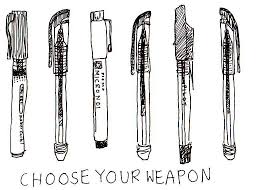As a 22 year old, I can say that technology more importantly the internet have been present in my life since I was born. I grew up watching television, playing games on the computer, I had my first phone when I was 9 and my first computer when I was 12. Don't get me wrong, I was a very social child and spent a lot of time playing outside with my friends but overall I always had a deep relationship with technology. After all, it is how I ended up in America, how I met most of my friends, how I made amazing work connexions and more.
But I am now starting to realize how deep the relationship I have with technology actually is. For example: everytime I go through customs at an airport I give a fresh set of finger prints, or when applying for a visa where I have to answer all questions about my privacy, or all the accounts that I have created throughout my life. In our society and especially in the future, it is going to be almost impossible to not leave a footprint on the internet at some point, because we all have a relationship with technology to some degree, some stronger than others. This realization also made me wonder if my relationship with technology is healthy? I personally think so, I rarely binge watch television, I use my phone like the average person does and I don't play any games or spend more than 2 hours using the internet. My relationship with technology at school is a little different, in almost every class I've been taking since high school I had to create an account for random websites, sometimes asked to put my picture, sometimes personal information, at first this doesn't sound like a problem, but what if some of my school work and research was about a controversial topic? And what about all the research that I had to do for these projects and the adds that I will be getting after.
My relationship with technology has definitely changed in the past few years because I am now abroad and because my phone is my only way of contacting my family and friends I always make sure it is on me, charged and my notifications are on. This means that my privacy has definitely compromised, or more than it was before. But I am not the only one in this situation, in the U.S according to -international-student-enrollment there are over one million international students in the U.S right now, this means that one million students here share all of their personal information on their phone like important documents, banking information and their only way of contacting or seeing their family members is a phone.
When thinking about the future and more importantly the future of AI, it is scary to think that everything we do will be monitored and controlled even more than it is today. Which is why I believe that the important question now is how do we control our privacy? rather than how do we obtain it?. Humans never had access to as many informations as we do today and no one can predict how that's going to affect our future or what humans will do with that knowledge which is why it is important to know our privacy right and stay updated about government decisions, information is key to finding solutions, the more people are informed the harder they are to control.










